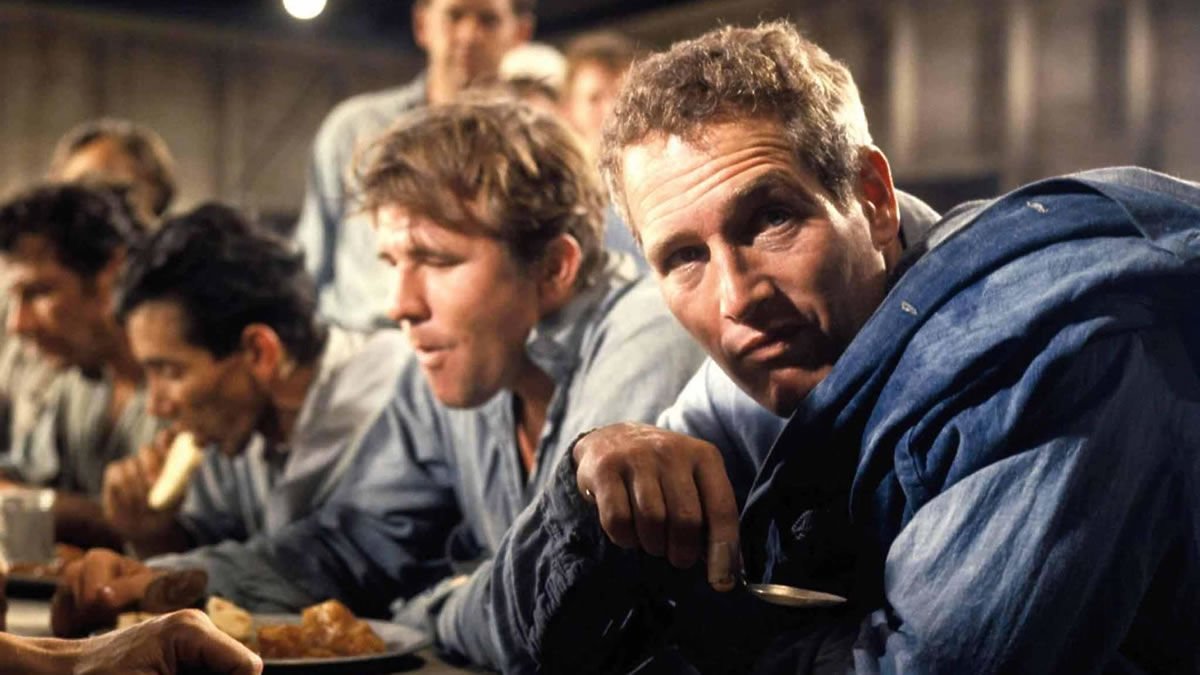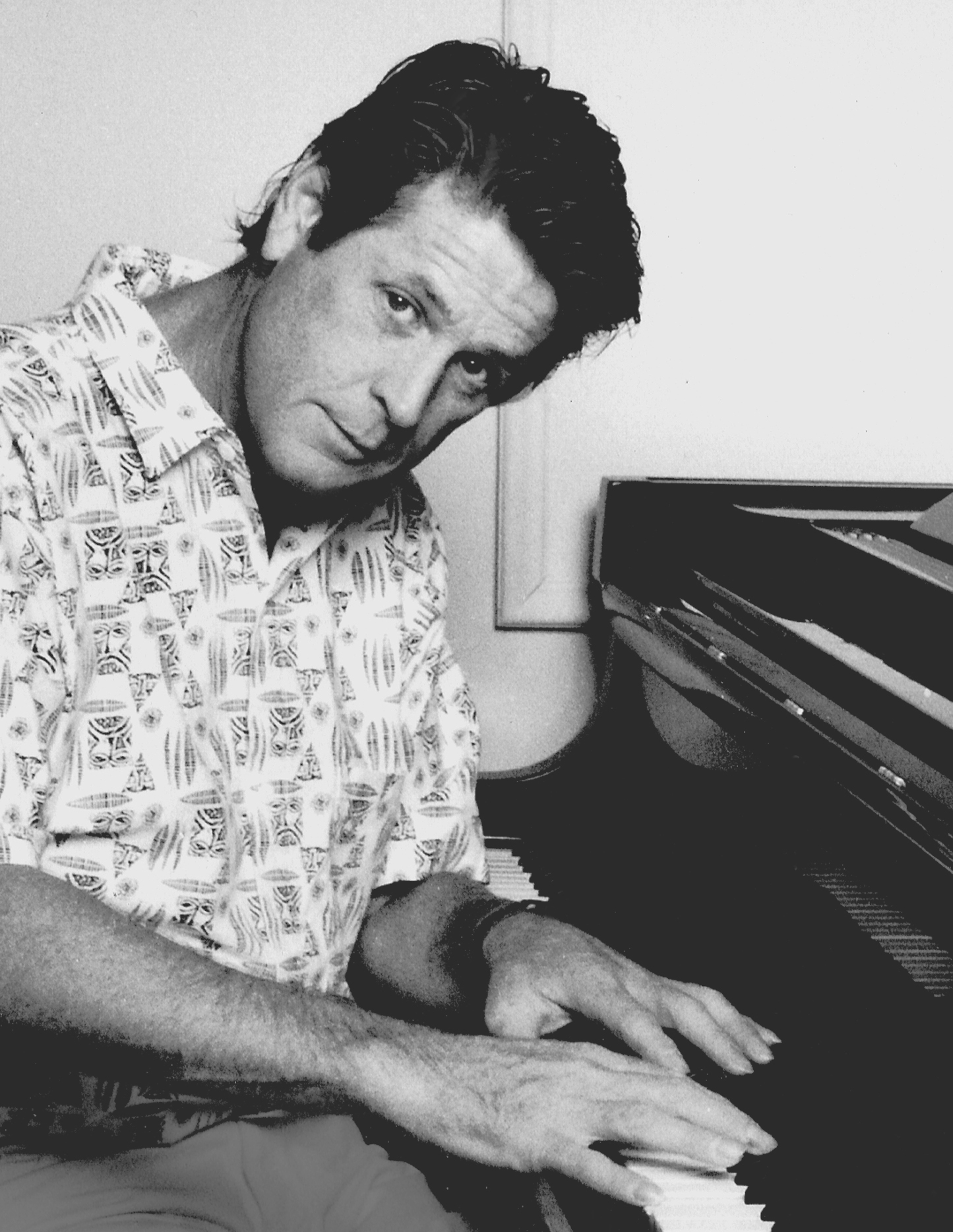
The passing of Brian Wilson at the age of 82 marks the end of an extraordinary era, yet his towering legacy as a creative force will resonate for generations. As a cofounder of the Beach Boys, Wilson didn’t merely write songs; he crafted sonic landscapes that captured the essence of an age, simultaneously pushing the boundaries of popular music while battling profound internal struggles. His genius was a complex tapestry woven with unparalleled melodic invention and an innovative spirit, often at odds with a personal life marked by significant challenges.
Wilson’s journey was one of paradoxes: a maestro whose meticulous studio artistry produced some of the most joyous and wistful music ever recorded, even as his private world was frequently overshadowed by what we now understand as cognitive and health battles. This deep dive into his life, music, and final days seeks to honor the man who so profoundly shaped the sound of a generation, providing context to the artistry that both uplifted and transcended his personal travails.
His story is a testament to the enduring power of music, born from a mind that soared to incredible heights even as it contended with its own vulnerabilities. We explore the multifaceted genius who helped define an era, the medical realities of his final days, and the initial reverberations of his departure from the world stage.

1. **Brian Wilson’s Legacy as a Beach Boys Cofounder**Brian Wilson’s name is inextricably linked with the Beach Boys, the iconic American band he cofounded, whose sound became synonymous with sunshine, surf, and youthful optimism. From the band’s inception, Wilson was the undisputed architectural genius, the visionary behind their distinctive sound and lyrical themes. He was not just a member but the heart and soul of the group’s creative output, shaping their identity with an unparalleled blend of pop sensibility and artistic ambition.
His role extended far beyond songwriting; Wilson was the primary composer, arranger, and often the producer, meticulously crafting the soundscapes that would become hallmarks of the Beach Boys. This foundational involvement ensured that every chord, every harmony, and every lyrical nuance bore his inimitable stamp. His contributions established the Beach Boys as more than just a band; they became a cultural phenomenon, forever altering the landscape of popular music and creating a legacy that continues to inspire.
Indeed, his impact was so profound that it’s difficult to imagine the Beach Boys, or perhaps even an entire genre of music, existing in the form we know it without his singular vision. Wilson’s pioneering spirit as a cofounder meant he was instrumental in laying down the very foundations of a sound that would travel far beyond the beaches of California, becoming a universal language of hope and longing for listeners across the globe.

2. **His Innovative Musical Genius and Production Style**Brian Wilson was unequivocally “renowned for innovative, polished production, complex harmonies and vocal layering, introspective themes, and a versatile head voice and falsetto.” This description barely scratches the surface of a man whose studio work transcended the expectations of his era. His production approach was revolutionary, treating the recording studio not merely as a capture device but as an instrument in itself, a canvas on which to paint intricate sonic pictures. He possessed an almost architectural understanding of sound, meticulously layering instruments and vocals to create a rich, immersive listening experience that was years ahead of its time.
The “polished production” wasn’t about gloss for its own sake; it was about precision, about ensuring every element served the emotional core of the song. Wilson’s arrangements were often breathtaking in their complexity, featuring unconventional instrumentation and unexpected shifts that defied the simple pop structures prevalent in the 1960s. He sought perfection, often spending countless hours in the studio, experimenting with textures and dynamics until his internal vision was fully realized, setting a new standard for album craftsmanship that would influence countless artists who followed.
Beyond the technical prowess, his genius lay in his ability to imbue these intricate productions with deep emotional resonance. The “introspective themes” that began to emerge in his work signaled a move beyond simple surf anthems, venturing into areas of profound personal reflection and universal human experience. This combination of groundbreaking technical skill and profound artistic sensitivity solidified his place as one of music’s true innovators, a visionary producer whose work remains a benchmark for creative ambition and sonic artistry.
Read more about: Unlocking Nolan’s Vision: 14 Essential Filmmaking Tips from the Master Behind Interstellar and The Dark Knight

3. **Defining the Southern California Surf-Rock Sound**In the vibrant cultural crucible of the 1960s, Brian Wilson and the Beach Boys emerged as the quintessential voice of a burgeoning movement, directly helping to “define the Southern California surf-rock sound.” Their early repertoire, filled with odes to surfing, cars, and sun-drenched beaches, wasn’t just popular music; it was a cultural phenomenon, an auditory postcard from a mythical paradise. Wilson possessed an uncanny ability to translate the carefree spirit and specific aesthetics of a region into universally appealing melodies and harmonies.
This “surf-rock sound” was characterized by its bright, shimmering guitars, driving rhythms, and above all, the unmistakable vocal harmonies that became the band’s signature. Wilson, with his meticulous ear and harmonic ingenuity, orchestrated these elements into a cohesive and instantly recognizable style that resonated far beyond California’s shores. His music provided the soundtrack to an idealized American youth, a world of endless summers and boundless possibilities that captured the imagination of millions.
The influence of this sound, crafted primarily by Wilson, cannot be overstated. It wasn’t just about popularizing a genre; it was about encapsulating a lifestyle, a dream that many aspired to. The songs he created, bursting with youthful exuberance and melodic charm, became anthems for a generation, establishing a cultural touchstone that endures to this day. His mastery in translating regional identity into global appeal cemented his role as a definer of not just a sound, but an entire cultural epoch.
Read more about: Mark Volman, Co-Founder of The Turtles and Flo & Eddie, A Celebrated Voice Who Shaped Pop and Advocated for Artists, Dies at 78
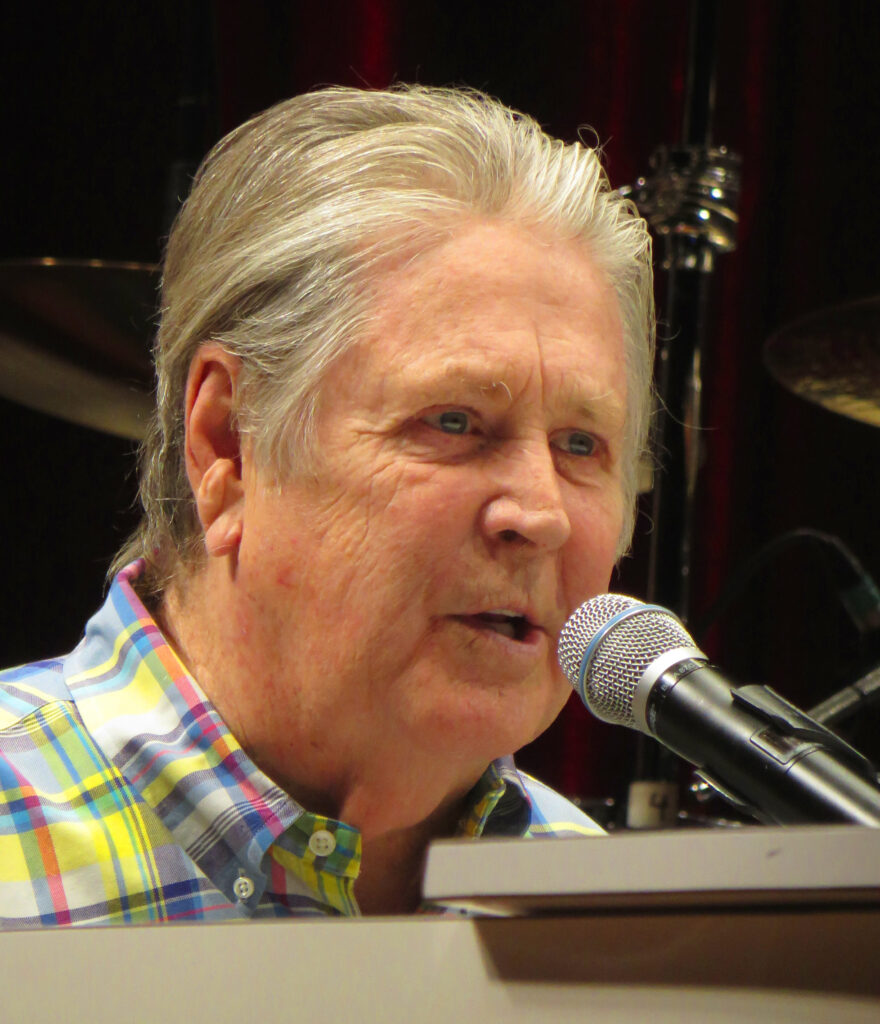
4. **His Signature Vocal Techniques and Harmonies**Central to the Beach Boys’ distinctive appeal and a testament to Brian Wilson’s genius was his profound command of “complex harmonies and vocal layering,” alongside his own “versatile head voice and falsetto.” These elements were not mere embellishments; they were the very foundation of the band’s vocal identity, setting them apart from nearly all their contemporaries. Wilson had an extraordinary innate understanding of vocal arrangement, treating voices as instruments, weaving them together into rich, ethereal tapestries that were simultaneously intricate and effortlessly beautiful.
His own falsetto, soaring effortlessly above the intricate harmonies, became a signature sound, adding a wistful, almost angelic quality to many of the Beach Boys’ most beloved tracks. This “head voice” wasn’t just technically impressive; it conveyed an emotional depth and vulnerability that resonated deeply with listeners. Whether it was leading a melody or floating as a high counterpoint, Wilson’s vocal contributions were as essential to the band’s sound as his songwriting and production.
The meticulous “vocal layering” he pioneered allowed for a density and richness that was unprecedented in pop music. Each voice was carefully placed, each harmony chosen with an ear for exquisite consonance and subtle dissonance, creating a shimmering, almost orchestral effect. This intricate vocal architecture was a direct reflection of Wilson’s innovative mind, demonstrating his relentless pursuit of sonic perfection and his unique ability to transform simple pop songs into multi-dimensional auditory experiences that have captivated and inspired generations.
Read more about: The Shocking True Story of the Stolen Car That Led to Elvis Presley’s First Record Deal

5. **The Circumstances of His Passing at 82**The music world paused on June 11, when “Beach Boys founding member Brian Wilson’s cause of death at 82 has been released.” He passed away “after experiencing several minutes of respiratory arrest on the morning of June 11 in his Beverly Hills, California, home.” This news, initially shared by his family on social media without an immediate cause, prompted an outpouring of grief and remembrance from fans and fellow artists worldwide, reflecting the immense impact he had on countless lives.
The confirmation of his passing location and immediate medical cause brought a degree of clarity to the somber announcement. Respiratory arrest, as defined by the Centers for Disease Control and Prevention as “when a person stops breathing,” marked the final moments of a life lived largely in the public eye, a life filled with both extraordinary creative highs and deep personal valleys. The dignified quietude of his Beverly Hills home offered a private setting for his final breath, a stark contrast to the sprawling, vibrant soundscapes he once created.
Following his passing, “Wilson was cremated and buried at a cemetery in the Westwood neighborhood, home to UCLA.” This final resting place, nestled within a community he knew well, provided a quiet closure to a journey that began decades ago in the sun-drenched suburbs of Southern California. The respectful handling of his remains underscored the deep affection and reverence held for a man whose contributions to music are simply immeasurable.
Read more about: Inside the Legend: Cristiano Ronaldo’s Monumental Career, The Foundation of an Elite Lifestyle

6. **The Medical Causes Contributing to His Death**While respiratory arrest was the immediate cause of Brian Wilson’s passing, a deeper look into his health revealed a series of significant factors that contributed to his declining health. According to a death certificate, “several hours of sepsis, which is a life-threatening bodily response to an infection, per the Centers for Disease Control and Prevention, and days of cystitis, or a bladder infection, were mentioned as contributing causes.” These conditions paint a picture of an individual whose body was contending with serious and escalating medical challenges.
Sepsis, a severe and often rapidly progressing systemic response to infection, represents a critical breakdown in the body’s ability to fight off illness, impacting multiple organ systems. Its presence for “several hours” indicates a profound and ultimately insurmountable challenge to his system. Paired with “days of cystitis, or a bladder infection,” it suggests an underlying infection that escalated to a life-threatening state, gradually weakening him over a period leading up to his final moments.
Furthermore, the death certificate also noted that Wilson “had a neurodegenerative disorder, obstructive sleep apnea, chronic respiratory failure and chronic kidney disease.” These long-term conditions underscore the complex health battles he faced, indicating that his system was under significant strain from multiple chronic illnesses. These factors collectively highlight the cumulative toll on his health, providing a comprehensive, albeit tragic, understanding of the medical landscape that contributed to the passing of this beloved musical icon.
Read more about: Global Icons of 2025: Discover the Top Figures Dominating Conversations and Shaping Our World

7. **The Complexities of His Later Years: Conservatorship and the Quest for Care**Brian Wilson’s twilight years were shadowed by a significant legal development: a conservatorship established in 2024, necessitated by his escalating health challenges. This deeply personal arrangement, unfolding in the public eye, marked a poignant chapter for the legendary artist. It underscored a stark reality: the same mind that once conjured intricate sonic architectures now required meticulous, external oversight for his fundamental well-being, a testament to the profound and relentless nature of his struggles. This conservatorship wasn’t a choice made lightly; it was a critical step born out of necessity to protect an individual who had given so much to the world.
The legal proceedings were driven by compelling medical evidence, explicitly detailed in a doctor’s declaration that supported the petition filed by his longtime manager, LeeAnn Hard, and publicist, Jean Sievers. The declaration laid bare the extent of Wilson’s vulnerability, stating he was “unable to properly provide for his own personal needs for physical health, food, clothing, or shelter.” Such a pronouncement paints a vivid picture of a man who, despite his towering creative legacy, found himself in a position where the most basic aspects of self-care had become insurmountable burdens, highlighting the insidious progression of his health conditions.
Crucially, the medical filings also revealed that Wilson was “taking medication for dementia,” a diagnosis that offered a critical lens through which to understand his declining cognitive function. This neurodegenerative disorder, combined with other chronic ailments, irrevocably altered his capacity for independent living. The conservatorship, therefore, became an essential safeguard, a legal mechanism designed to ensure that Brian Wilson, the maestro who had once built musical empires, received the dignified care and protection he deserved in his final, challenging years, navigated by those entrusted with his welfare and love.
This period, while undoubtedly difficult, also highlighted the unwavering commitment of his closest confidantes and family to his comfort and safety. The move towards conservatorship, though an intensely personal matter, resonated with many who had witnessed Wilson’s lifelong battles with various health issues. It represented a collective effort to provide stability and support, allowing him to live his remaining days with as much peace and security as possible, even as his incredible mind continued to face its own internal labyrinths.

8. **A Global Chorus of Grief: Family, Fans, and Fellow Artists Mourn**The news of Brian Wilson’s passing on June 11 reverberated far beyond the immediate circles of his family, triggering a global outpouring of grief and remembrance. His family’s initial social media announcement, delivered with profound transparency and vulnerability, encapsulated the depth of their loss: “We are heartbroken to announce that our beloved father Brian Wilson has passed away,” they wrote, their words echoing the raw pain shared by countless admirers, “We are at a loss for words right now. Please respect our privacy at this time as our family is grieving. We realize that we are sharing our grief with the world. Love & Mercy.” This poignant message instantly connected with millions who felt his absence acutely.
Within the Wilson family, the sorrow was particularly acute, touching those who knew him not just as a legend, but as a father. Brian is survived by his daughters from his first marriage, Carnie and Wendy, who carved out their own musical path as part of the acclaimed group Wilson Phillips. Carnie Wilson’s Instagram tribute offered a deeply moving glimpse into their bond, sharing, “I have no words to express the sadness I feel right now. I am lucky to have been his daughter and had a soul connection with him that will live on always. I’ve never felt this kind of pain before, but I know he’s resting up there in heaven … or maybe playing the piano for Grandma Audree, his Mom.” Her words underscored a spiritual connection that transcended even death.
Beyond his biological children, Wilson’s family also included his five adopted children from his second marriage to Melinda Ledbetter, demonstrating the breadth of his personal connections and the love he cultivated. This extended family unit played an invaluable role in his life, providing a private sanctuary amidst the demands of public life and his personal struggles. Their collective mourning spoke volumes about the man behind the music, a figure deeply cherished and held dear by those closest to him.
The worldwide response from fellow musicians, critics, and an immense legion of fans further amplified the significance of his departure. Social media platforms, news outlets, and music communities transformed into digital memorials, filled with heartfelt tributes, personal anecdotes, and shared memories of how Wilson’s music had shaped individual lives and the broader cultural landscape. This collective remembrance solidified the understanding that his death marked not just the end of an individual life, but the closing of a monumental chapter in the history of popular music, leaving an enduring void that will be felt for decades.

9. **Beyond the Surf’s Edge: The Architectural Genius of His Timeless Sound**While the Beach Boys initially gained fame by definitively “defining the Southern California surf-rock sound,” Brian Wilson’s creative brilliance swiftly transcended these early, sun-drenched anthems, evolving into an intricate and profound artistry that would irrevocably alter the course of popular music. His ambition was boundless, driving him to pioneer “innovative, polished production, complex harmonies and vocal layering,” transforming what were ostensibly simple pop songs into multi-layered, emotionally resonant masterpieces. This revolutionary approach set an entirely new standard, proving that pop could possess both widespread appeal and profound artistic depth.
The turning point came as Wilson increasingly ventured into “introspective themes,” moving beyond the youthful exuberance of early hits to explore deeper, more complex human emotions. This artistic maturation was evident in compositions that delved into vulnerability, existential longing, and the intricate nuances of personal experience, effectively expanding the lyrical and emotional vocabulary of popular music. He possessed an uncanny ability to translate abstract feelings into tangible, breathtaking melodies and arrangements, creating a universal language for the ineffable.
His masterpieces, such as the critically acclaimed ‘Pet Sounds’ album and its seminal tracks like ‘God Only Knows,’ alongside the iconic single ‘Good Vibrations,’ stand as enduring monuments to his artistic zenith. These works are celebrated not merely for their popularity but for their unparalleled sophistication in arrangement, their daring experimentation, and their raw emotional honesty. Wilson’s studio became a laboratory, where he painstakingly layered instruments, vocal harmonies, and unconventional sounds to create a symphonic pop that was years ahead of its time, pushing the boundaries of what a commercial record could be.
These “essential Brian Wilson songs” continue to resonate with immense power, perpetually inspiring new generations of artists and captivating listeners with their timeless beauty. His meticulously crafted soundscapes and harmonic inventions laid a crucial foundation for progressive pop and rock, demonstrating an audacious spirit of innovation that transformed the very expectations of the recording studio. Brian Wilson’s influence is a continuous thread woven through the tapestry of modern music, affirming his status not just as a songwriter, but as a true musical architect whose vision shaped entire genres and artistic movements. His work proves that true genius is not bound by era or trend, but echoes eternally.
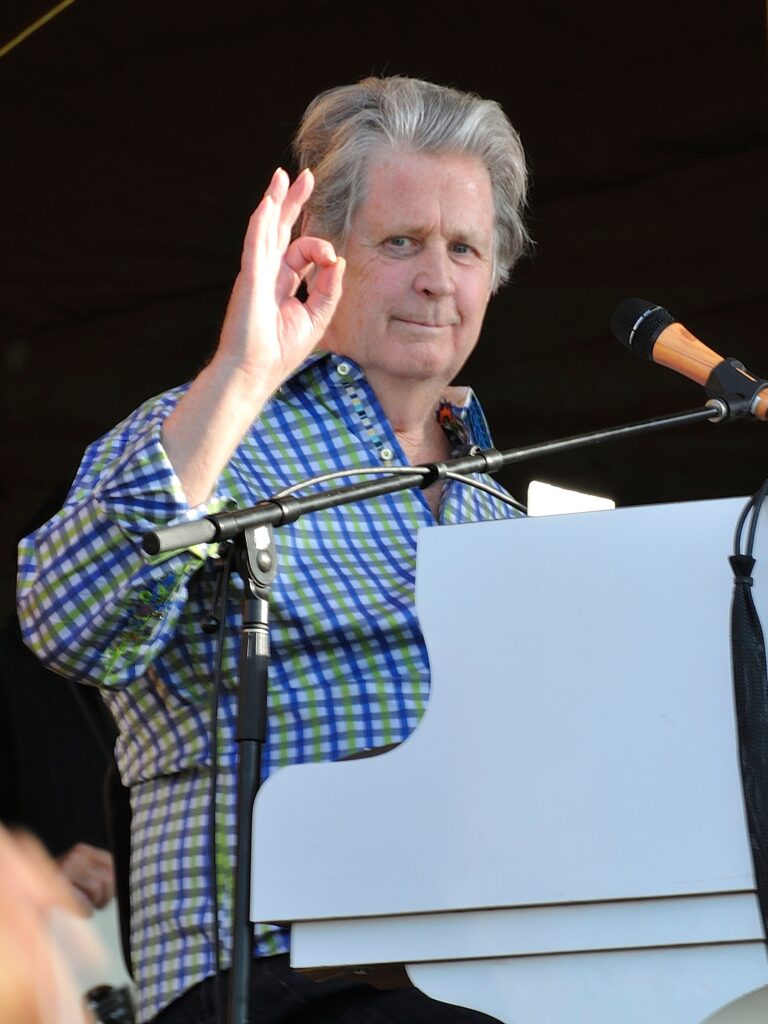
10. **The Unseen Battles: Mental Health, Resilience, and the Creative Fire**Brian Wilson’s extraordinary life story is a compelling, often heartbreaking, narrative of the inextricable link between unparalleled creative genius and profound mental health struggles. Throughout his illustrious career, even as he scaled the dizzying heights of musical innovation, he was simultaneously engaged in an agonizing private war against “profound internal struggles” and persistent “cognitive and health battles.” This enduring duality became a defining feature of his public and private existence, serving as a powerful, poignant reminder that artistic brilliance can often coexist with immense, debilitating personal pain, transforming his journey into a complex saga of triumphs and tribulations.
The medical realities of his later years, particularly the diagnosis of a “neurodegenerative disorder” and his treatment for “dementia,” illuminate the long-term and often silent suffering he endured. These were not minor afflictions; they were central to his being, fundamentally impacting his ability to navigate the world, to connect, and to function independently, eventually leading to the necessity of his conservatorship. Understanding these deep-seated challenges is crucial to fully appreciate the context of his musical output and the sheer resilience it took to create under such immense duress. His ability to produce such joyful and introspective art while wrestling with these conditions remains a marvel.
His public persona, invariably intertwined with these ongoing mental and physical health battles, presented him as a figure of both immense talent and visible vulnerability. He navigated the intense scrutiny of fame while confronting deeply personal demons, a journey that offered glimpses into the taxing toll of his conditions. The courage he demonstrated in continuing to compose, record, and perform, even as his health undeniably declined, speaks volumes about his unwavering dedication to his art, a sacred calling that often provided solace amidst his torment.
This brave persistence, exhibited despite formidable internal and external pressures, solidifies his image beyond that of a mere musical legend. It presents him as a profoundly human figure whose life reflected the universal struggle for stability, meaning, and authentic self-expression. Wilson’s capacity to channel his personal anguish into music that resonated with hope and beauty is perhaps his most powerful testament, transforming his private pain into a shared human experience that continues to connect with listeners on a deeply empathetic level. His resilience became an integral part of his legacy, inspiring many to confront their own vulnerabilities.
Read more about: Hollywood’s Hidden Battles: 14 Surprising Truths About Movie Making, Money, and the Producers Who Make It Happen
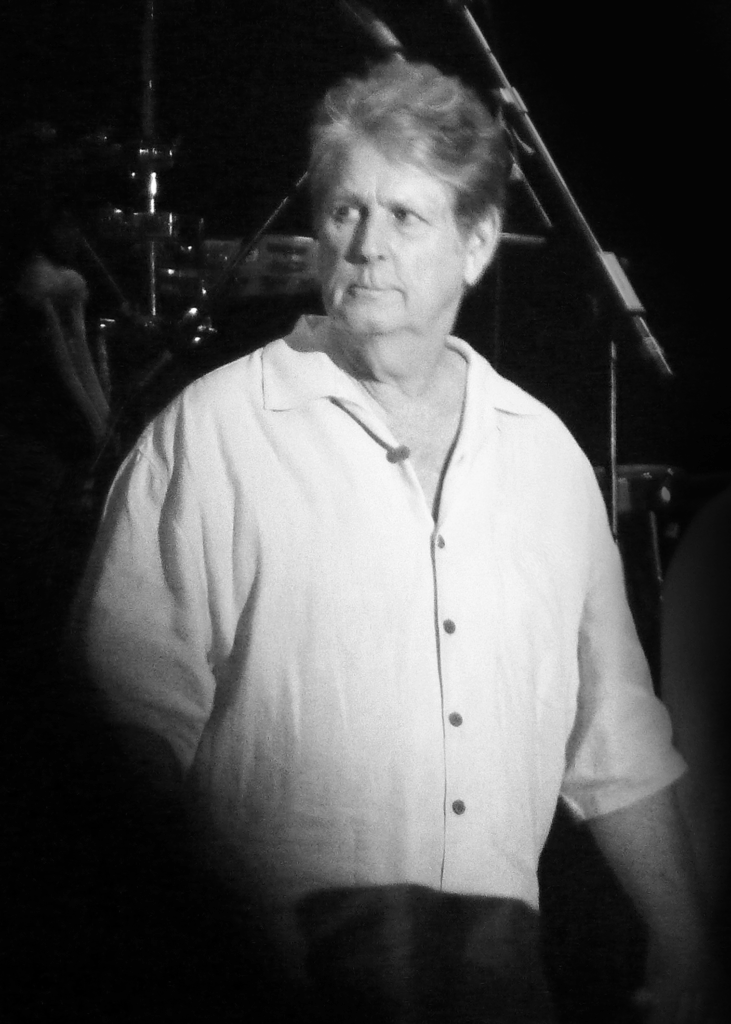
11. **An Immeasurable Legacy: The Enduring Architect of Sound**The passing of Brian Wilson represents far more than the cessation of a single life; it marks the departure of an unparalleled architect of sound, whose profound influence on popular music remains immeasurable and continues to echo across generations. From the shimmering, sun-drenched harmonies that initially captured the zeitgeist of an era to the symphonic complexity and introspective depth of his later masterpieces, Wilson painstakingly crafted a sonic language that effortlessly transcended ephemeral trends. He created a lasting cultural touchstone that continues to enchant and enlighten.
His indelible mark is vividly imprinted on the countless musicians who consistently cite his groundbreaking work as a fundamental cornerstone of their own creative endeavors. This includes everything from his meticulously arranged vocal harmonies to the revolutionary studio techniques he pioneered, which redefined the possibilities of musical production. Wilson was not content merely to write songs; he possessed an almost divine ability to construct entire emotional worlds within his compositions, demonstrating an emotional depth and structural sophistication previously considered unimaginable within the realm of popular music, effectively blurring the lines between pop and classical artistry.
This visionary foresight, this audacious willingness to experiment and relentlessly push the conventional boundaries of what was deemed commercially viable, firmly established him as a true pioneer. His impact stretches far beyond the celebrated confines of his own discography, actively shaping the very trajectory of modern music and inspiring a paradigm shift in how artists approached album-making. He dared to dream bigger, to hear sounds that others couldn’t, and then possessed the genius to bring those visions to life, setting a benchmark for creative ambition that few have ever matched.
Read more about: Defying Fate: The Electrifying Life and Enduring Legacy of Disco Icon Sylvester
Ultimately, Brian Wilson’s complex legacy is a profound study in paradox: a solitary genius who wrestled fiercely with his own mind while simultaneously conjuring music that delivered unparalleled joy, wistful nostalgia, and deep emotional resonance to millions across the globe. His life was a powerful testament to the enduring, transformative power of art, demonstrating how profound beauty can astonishingly emerge from the crucible of intense struggle. As we reflect upon his extraordinary journey, we are forever reminded of the singular magic he wove into the collective consciousness, a rich, melodic tapestry that will eternally echo. He was a true maestro whose vibrant creative spirit will continue to inspire countless generations to embrace both the light and shadow within their own artistic pursuits.



